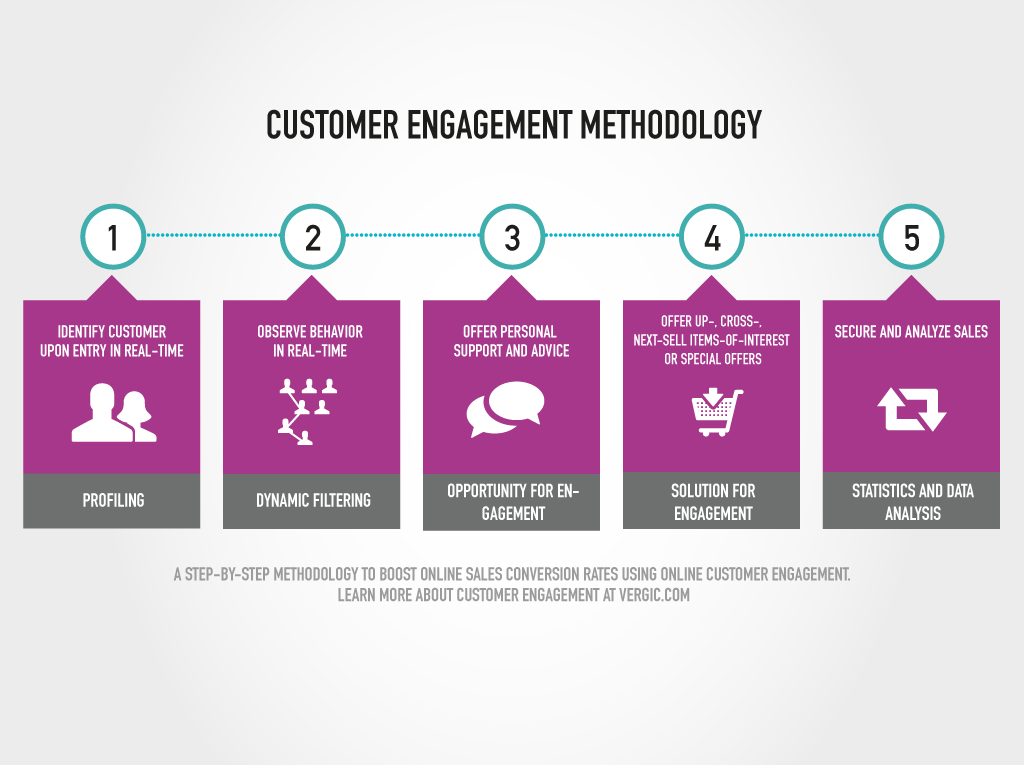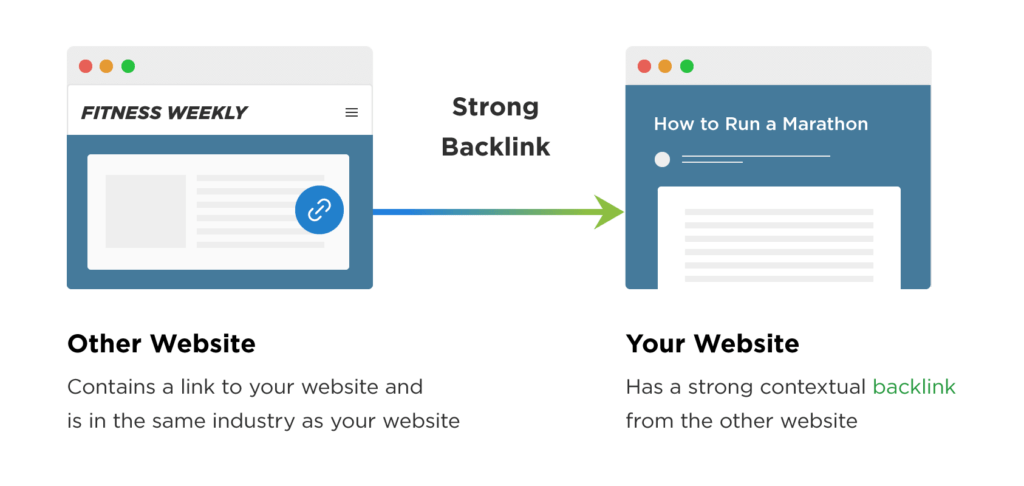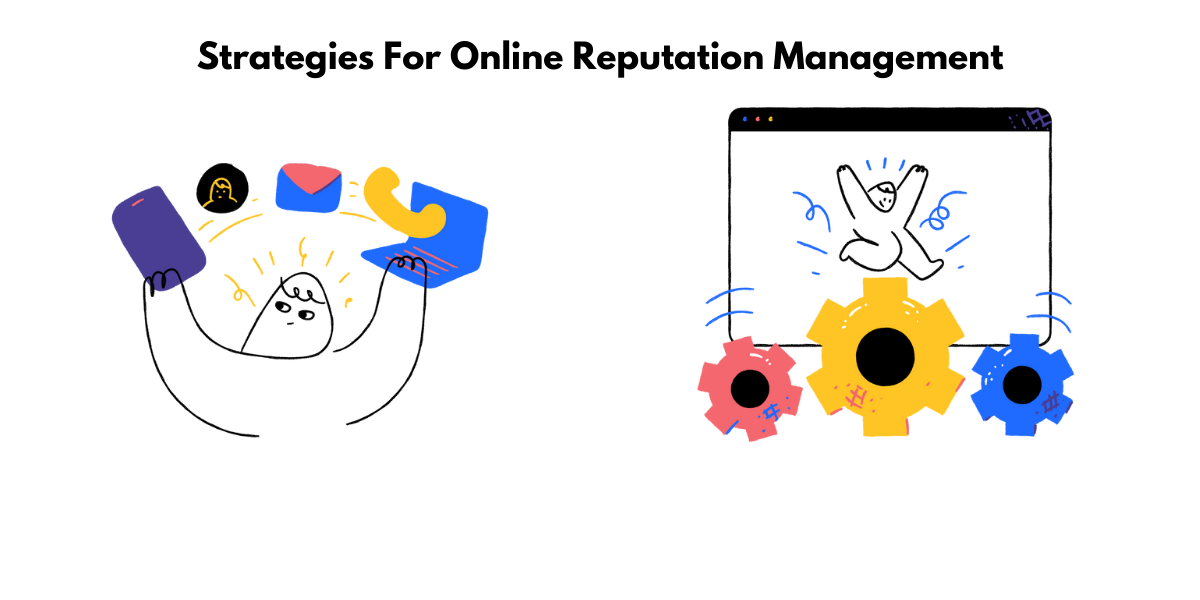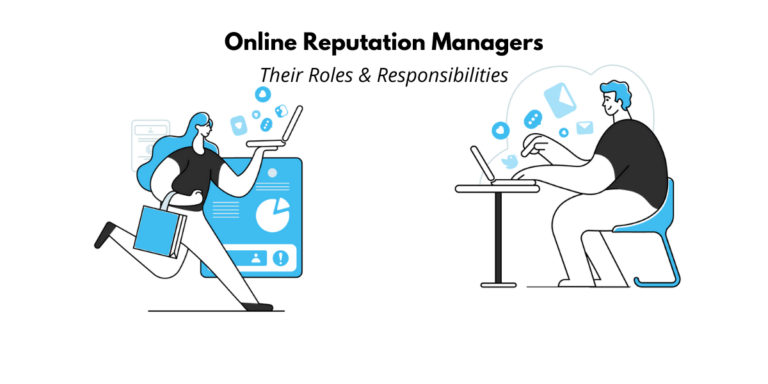Online Reputation Management Strategy for SEO
An online reputation management strategy for SEO is a process of improving your website’s potential in search engine rankings.
This can be done by ensuring your content and metadata are accurate and by creating a social media presence that includes both positive and negative content.
Online reputation management (ORM) is the process of reputation monitoring, managing, and influencing a company’s or individual’s perception of the internet.
The main goal of ORM is to maintain a positive sentiment from customers, who are likely to take further action as a result of reduce to reviews or comments by custom customer comments:
- creating and publishing content
- responding to potential customer feedback
- actively monitoring social media for any brand mentions
How does SEO support online reputation management?
SEO is the practice of optimizing a website for Google Alert search to earn higher web traffic levels and improve the site’s visibility.
SEO can support brand reputation management in a few ways:
- If negative content about you or your business appears at the top of Google search results, it can devastate your online reputation. SEO can help to push that content further down in the search results so that it is less likely to be seen by potential customers or employers.
- Second, positive content about you or your business can be promoted through SEO to appear higher in Google search results, helping to improve your online reputation.
- Third, SEO can help you to track what people are saying about you online so that you can respond quickly and appropriately if necessary.
- Fourth, SEO helps businesses create and publish high-quality content regularly, improving their online reputation.
Why invest in online reputation management reverse SEO services?
There are many reasons to invest in online reputation management (ORM) reverse SEO services.
First and foremost, ORM is a critical part of any organization’s social media marketing strategy. You need a strong ORM program to protect and improve your brand’s online reputation.
But beyond the importance of ORM for branding purposes, there are also significant SEO benefits to be gained from an effective ORM campaign.
As we all know, Google prioritizes “authoritative, trustworthy sources” for SEO.
One of the best ways to make your website authoritative and trustworthy is by increasing its authority and trustworthiness on third-party websites.

10 steps to create an online reputation management strategy for SEO
Online reputation management for SEO is a key component for businesses of all sizes.
It involves controlling the online narrative of a person, company, or brand by protecting, monitoring, managing crises, and restoring a brand’s image.
With 88% of consumers conducting online research before purchasing, it is vital to have a positive online presence to build trust with customers, employees, and investors.
To maintain a positive reputation, businesses should invest in online reputation management, which includes optimizing content, backlinks, and social media profiles.
Through SEO reputation management, companies can reduce negative search engine results and replace them with more positive content.
Furthermore, businesses should focus on increasing the authority and trustworthiness of their website and optimizing their presence on authoritative third-party sites.
Step 1: Monitor your reputation
It is important to monitor your online reputation as it can significantly influence how people perceive your business.
Keeping track of reviews, blog posts, and social media posts is essential to help ensure your business is represented positively.
Unfavorable comments can create a social media crisis for your business and must be addressed promptly and professionally.
A key step to successful online reputation management is monitoring the content available about your brand using tools such as Twitter Search.
This way, you can stay up to date on what is being said and have the ability to respond in real-time to any negative sentiment.
Proper monitoring ensures that your business’s online reputation is positive and intact and your brand is represented authentically.
Step 2: Devise a response plan
A response plan outlines the steps that your business will take in the event of a crisis.
It should include who is responsible for what in the event of a crisis, as well as strategies for responding to the following:
- product issues
- customer criticism
- employee or branch errors
- site or platform outages
- global events
- crises
- tragedies
Response plans should include a plan for conducting research and audits to understand customer perceptions.
- Identify the most damaging factor in your reputation and create a list of remedies to address the issue.
- Address the remedies in a serial manner, one by one.
- Identify the strongest levers in terms of reputation and implement the successful strategy for other content channels.
- Examine reputational vulnerabilities and determine the areas most vulnerable to a reputation attack. Create a plan to strengthen those properties.
- Write out step-by-step instructions for a response plan that can be used during a crisis.
Step 3: Handle negative comments delicately
It is important to handle negative comments delicately because they can directly impact how people view your brand.
Ignoring negative reviews can make it appear that you do not care about customer feedback.
On the other hand, responding to negative comments with a polite and professional tone can help to turn the situation around.
Not only does it show that you are taking their feedback seriously, but it also allows you to make real changes to improve your services and products.
Furthermore, responding quickly to negative reviews can help to win over unhappy customers and build rapport with them.
Finally, customer complaints can be used as an opportunity to learn and improve your business.
- Remain polite, professional, and friendly when responding to negative reviews.
- Get to the heart of the issue and try to help.
- Name the person responding to the review to make customers feel taken seriously.
- Respond quickly to negative reviews to demonstrate that you’re listening.
- Use customer complaints as lessons to help improve your product.
- If necessary, continue the conversation with the customer in private.
- Avoid trying to remove complaints from sites just because they aren’t flattering.

Step 4: Establish an online presence
An online presence is a company or individual’s presence on the internet.
This includes all information related to the company or individual, such as:
- reviews
- ratings
- customer service
- content marketing
- website
- social media accounts
Businesses must maintain a positive online presence, as it can significantly influence a potential customer’s decision.
Online reputation management is the proactive process of influencing what people find out about your business online.
Companies should create a strategy model to learn, adapt and build equity long-term to ensure their online presence is positive and trustworthy.
Step 5: Follow through and measure your results
The importance of following through on commitments and measuring results cannot be underestimated when managing a brand’s reputation.
Keeping promises and providing value to customers help build brand loyalty and provide useful insight into what customers love and don’t love about your products or services.
Keeping promises and taking action to improve customer experiences can also provide an opportunity to make real changes in your organization.
However, it is important to measure progress to ensure that the changes have the desired effect. Monitoring reviews and social media conversations can provide insight into customer sentiment.
When tracking changes in sentiment, it is important to consider review sites, blogs, and social media – all of which are important sources of customer opinions.
Ultimately, making only those promises you can keep and managing any negative fallout is key to creating a positive reputation.
Step 6: Set up alerts
Alerts are an essential tool for online reputation management as it allows you to quickly identify and respond to any negative comments or questions people may be making about your brand.
They also give you an accurate picture of what potential customers will see when they search for your business online.
With alerts, you can track all online mentions of your brand on platforms such as Twitter, Google Alerts, Yahoo Alerts, and more.
You can also set up parameters to search by account, sentiment, location, date, or links. Ultimately, alerts are a great way to maintain a good online reputation.
- Go to Google Alerts and enter your brand name and domain into the search bar.
- Choose the target country for the alerts and enter the brand keywords you want to track.
- Select the frequency at which you would like to receive the alerts; you can choose from daily, weekly, or monthly.
- Monitor the dashboard and email reports for brand sentiment and reach.
- Request customer reviews and ratings on two review sites relevant to your business.
- Set up streamlined, graphical email templates and mobile review requests to simplify the process.
- Ask customers for reviews immediately after a customer visit or service experience.
- Track your brand, competitors, and customers by checking online sources such as social media networks, forums, and blogs.
- Use Google Alerts to stay updated on industry news and follow your competitors.
- Utilize text analytics to understand the sentiment, analyze feedback, and take action.
Step 7: Create or hire a team
Hiring a team dedicated to reputation management for SEO is an important step toward protecting and strengthening a company’s online presence.
Using SEO strategies to rank websites for brand-focused queries and optimizing webpages for brand-related keywords can help to push down any negative search results and replace them with positive content.
Additionally, earning positive brand mentions, claiming and optimizing relevant third-party profiles, and being active on social media platforms can help to bolster a company’s reputation.
Ultimately, finding a team with a track record of success, privacy and data management systems, sustainable results, and referenceable customers is key to successful business reputation management.
Step 8: Choose your influencers wisely
Choosing an influencer wisely regarding online reputation management is important because your reputation and brand are at stake.
An inappropriate influencer could hurt your reputation, as evidenced by the 2017 Disney and PewDiePie scandal.
Therefore, it is essential to carefully consider potential influencers before selecting one.
You should look for influencers who best fit your brand image and are not already taken by your competitors.
You should also consider the sentiment of their posts and the size of their followers on platforms such as Twitter and Instagram.
Moreover, reaching out to people who are already mentioning your brand or would be good ambassadors for it can also be a great way to start building relationships.
Finally, you should leverage existing relationships with your biggest clients by partnering with them for webinars, interviews, and affiliate commissions.
Ultimately, it is important to choose an influencer wisely so you can avoid any potential disasters that would damage your reputation and brand.

Step 9: Engage with customers
Engaging with customers is an important part of successful customer relationship management.
It helps to build trust and rapport, increases customer loyalty and satisfaction, and allows businesses to get feedback and refine their products and services.
Customers want to feel connected with the brands they buy from and like their voice is heard.
By interacting with them, businesses can keep them as customers and create customer advocates who can help spread the word about the brand.
Social media can also connect with customers, update them, and show them that their opinion matters.
Monitoring reviews and social media comments can provide valuable insights into what customers like and don’t like and help to refine the customer experience.
Finally, being visible on the right social media channels can help potential customers find and connect with the brand, leading to increased sales.
Engaging with customers is, therefore, a key step in building a successful business.
Here are some examples of customer engagements you can try:
- Thanking customers when they have something positive to say.
- Taking customer criticisms to heart and responding thoughtfully.
- Ignoring trolls who post derogatory or inflammatory messages.
- Creating paid strategies on the right social media platforms.
- Sharing helpful information through content marketing.
- Running automated webinars.
- Being active on social media.
- Answering questions and handling complaints.
- Updating followers with deals and company news.
- Using popular messaging services to win sales and loyalty.
Step 10: Ask for help if necessary
Ask for help when managing your online reputation because it can be the difference between a dissatisfied customer and one that becomes a loyal champion.
Alerts can bring in business and allow you to respond to negative comments while generating a constant stream of reviews that can show potential customers that you are engaging with them regularly.
Asking for reviews is a great skill to learn, as customers who are happy with your product or service are more likely to leave a positive review.
Automation can help simplify the process of asking for reviews, and by doing so, you are showing your customers that you care about their feedback.
Finally, asking for help to collect valuable customer feedback and improve your company, products, and services is important.
Reasons why your pages aren’t ranking
SEO is essential for online success, as it can help search engines better understand where to rank websites and create a positive brand perception.
To gain an edge over competitors and make sure your website is performing at its best, it’s important to invest in the following:
- high-quality content marketing
- utilize keyword optimization
- on-page optimization
- off-page optimization
Additionally, ensuring your website is secure, and loads quickly are key to providing an excellent user experience.
Audit your site for indexing and optimization level
It is important to audit your site for indexing and optimization levels to improve your online reputation.
The audit will help identify any negative or off-brand results that appear in the search results and ensure that your website is optimized for search engines.
This will allow your website to rank higher in the search results, increasing the chances of potential customers visiting your site and creating more positive reviews.
Additionally, it will help you build credibility and authority by regularly posting content and promoting your brand on social media.
A brand audit is the first step in a successful online reputation management strategy, as it will provide a comprehensive overview of your online presence.

Check the strength of your backlink profile
A website’s ranking can be improved by increasing the quantity and quality of its backlinks. You can use Ahrefs to measure your website’s backlink profile against your competitors.
To do this, add domains in the Domain Comparison module and then compare them.
The table will show factors that affect on-page ranking, such as Total Backlinks, Total Linking Domains, and DoFollow backlinks.
These are important metrics to monitor if you want to improve your website’s ranking.
Check if the wrong pages rank for your branded keywords
If you’re seeing your pages ranking for branded keywords you don’t want to rank for, you can do a few things. You can:
- Filter the queries in your search console. This will help you identify the most popular Google queries your pages rank for.
- Use Rank Tracker to track your website’s position on Google. The Rank Tracking submodule is used to add keywords, with a time frame of up to 3 months. Results appear in the dashboard after 24 hours and are updated daily, showing only the top 20 results for each keyword.
- The tool will track and record your branded queries’ top 10 search results. Now, the tool also tracks changes over time for these queries.
- You can assign a query to the right landing pages by right-clicking it and hitting “Assign selected keyword(s) to land pages.”
- If you find that content on one of your web pages is insufficient or poorly optimized, consider changing its order of ranking on Google.
Strategies for online reputation management
An online reputation management strategy is important for any business that wants to protect its brand name and ensure that they are seen in the most positive light possible.
Various strategies can be used, including SEO, Google My Business results and news stories, online reviews, and social media content.
You can also use a reputation audit to get an objective view of how the public perceives your company.
The ultimate goal of a good reputation management strategy is to defend your brand and mold public opinion in a way that they view you objectively.
Not only is online reputation management important for brick-and-mortar businesses, but online businesses as well.
An online reputation management company can help to mend public relations when they go south.
Additionally, online reputation management software is a great way to manage negative or positive experiences online.
Business owners must be proactive in tracking all the places their company is being mentioned.
By monitoring the web and social media, business owners can address any negative sentiment and turn it into a happy customer experience.
Boost the prominence of positive search rankings
You can boost positive results to drown out any negative information.
This can be done through SEO techniques or by asking for satisfied customer reviews.
Positive results will help your business appear more prominently on search engine results pages (SERPs) and create a steady stream of positive insight into your products and customer service.
Podium’s tools can help you gather feedback and improve your product.

Address negative search results
If you’re seeing negative search results for your company, there are several steps you can take to address them. The first step is identifying the keywords that are producing negative results.
You can use SEO tools such as Ahrefs to help identify these keywords.
Once you know the keywords that need attention, you can start working on a link-building strategy.
This will involve getting other sites to link to positive search results for your company.
White hat techniques are the best way to build backlinks, and they’ll help improve your site’s reputation over time.
Fine-tune content on all platforms
You must take a holistic approach and address content on all platforms to manage your online reputation.
This means looking at content on Google, Amazon, LinkedIn, and social media.
The first step is to identify a bad review or comment that could be damaging your brand awareness. Once you’ve identified these sites, you must look into high-profile sites like Google, Amazon, and LinkedIn.
These are the sites where potential customers will most likely search for information about your company.
If you have a presence on social media, make sure your posts are positive and informative. Make sure to post often to bury any negative results in the search engine results pages (SERPs).
In addition, consider posting long-form content on LinkedIn so that it slowly pushes down negative press over time.
SEO is key when it comes to managing the online reputation of a business.
Utilize white hat techniques like creating do-follow backlinks to help increase the visibility of your website on Google ads’ first page SERPs.
You can also reach out to industry influencers who can positively promote products or customer service.
Another way SEO can help with online reputation management is by increasing click-through rates for videos on YouTube channels.
Finally, if you are struggling with negative press, consider hiring a PR specialist to reframe the story in a more positive light.
- Boost Your Biz: 15 Proven Ways to Increase Google Reviews - November 12, 2024
- Could Fake Reviews Become a Thing of the Past? The Push for Legal Action Against Online Deception - May 15, 2024
- 10 Steps to Create an Online Reputation Management Strategy for SEO - September 25, 2022







